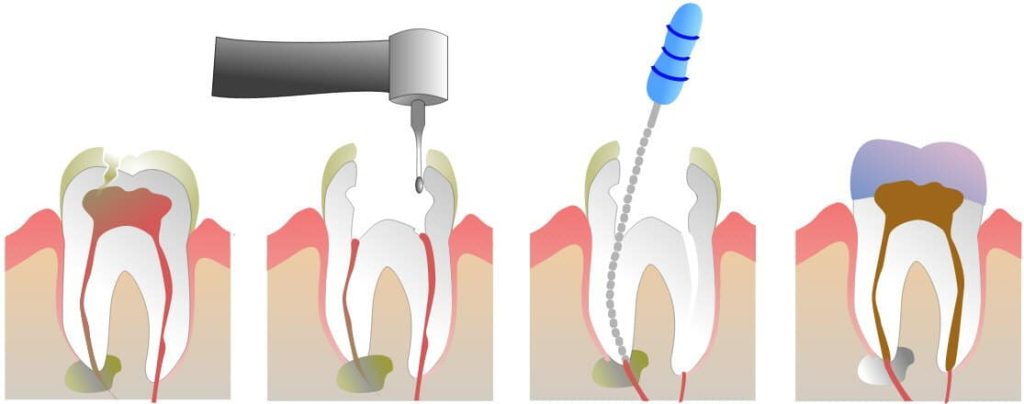Root canal treatment is the dental treatment carried out when the nerve of a tooth completely dies or becomes infected, ie a tooth abscess develops. If a toothache develops, this can be very uncomfortable. By carrying out root canal treatment, the tooth can be saved without the need for extraction.
The pulp, or nerve, of a tooth can become infected from deep decay, a cracked tooth, trauma to the tooth, severe tooth grinding or wearing down of the tooth and even some instances of gum disease.

Once it has been determined if your tooth is suitable for root canal treatment and this is your treatment of choice, appointments are made to complete the root canal treatment. Antibiotics may be prescribed prior to starting a root canal to allow the infection to start settling before commencing endodontic treatment. Often two visits are required over a period of time, occasionally three depending on the severity of the infection.
At the first visit, the tooth is numbed with local anaesthetic and any decay or loose fillings are removed. The tooth is often isolated or kept separate and sterile with rubber dam or a special tooth drape. The infected nerve is cleaned out from the roots with specialised instruments and an antibiotic/anti-inflammatory dressing placed inside the root canals. This dressing is left in place and sealed with a temporary filling until the next visit.
Once the infection has settled, a biocompatible root filling is placed inside the root canals and a permanent filling is placed on top. X-rays are involved to ensure the correct root measurements have been made and to check the final root filling.
A crown is often recommended to protect the remaining tooth structure to strengthen the tooth and prevent further chipping or cracking.
For further information please contact us on 8270 2869.










